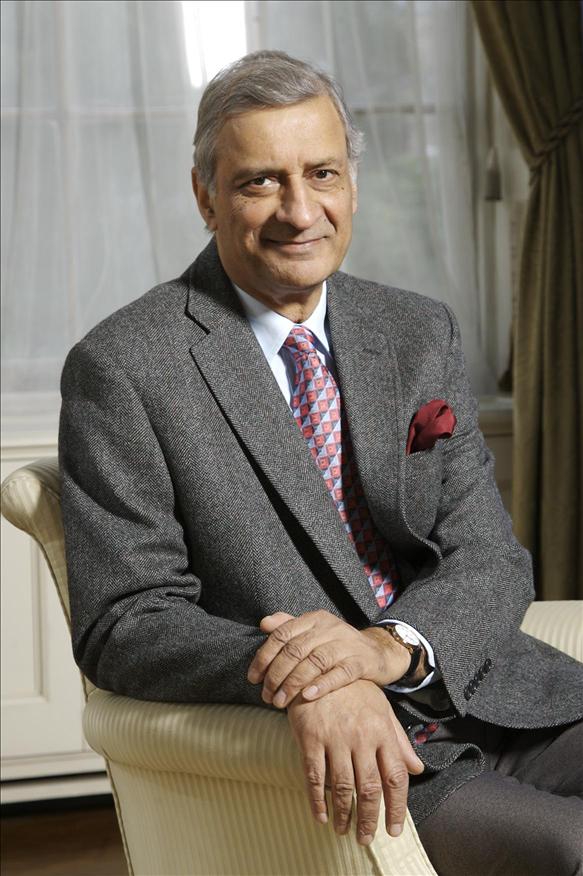 After almost six years of dingdong battle, Fiji remains a diplomatic nightmare and regional and international enigma and with no solution in sight.
After almost six years of dingdong battle, Fiji remains a diplomatic nightmare and regional and international enigma and with no solution in sight.
Although he did not throw up his hands, Commonwealth Secretary General Kamlesh Sharma agreed that the military regime in Fiji in general and Prime Minister Commodore Josaia Voreqe Bainimarama in particular, has remained defiant since the overthrow of an elected Government on December 5, 2006.
Like other world leaders, he also appeared resigned to the fact that none of the political rhetoric, economic sanctions, travel bans, suspension from international and regional bodies and words of warning that came from the Heads of Government over the past five years has had any effect.
“The Commonwealth strongly believes in democracy and in promoting democratic institutions, rule of law, properly structured legislature and independent judiciary. We have always stressed that Fiji should restore the democratic process, reinstate freedom of speech, restore human rights and stop harassing innocent people. We will continue our efforts,” he told Indian Newslink during an interview in Auckland last fortnight.
Commonwealth is an exclusive Club for existing and former British colonies, with 53 countries as its members accounting for 1.8 billion citizens (30% of the world population).
He was here to attend the 42nd Meeting of the Pacific Islands Forum (PIF), at which the Commonwealth has an Observer status. Apart from the Heads of State of the Member Countries, ministers and top officials from many other countries on ‘Observer Status’ (including India) also attended the meetings held in Auckland from September 6 to 8, 2011.
Commonwealth Decision
Mr Sharma agreed that the sanctions were harsh on Fiji but said that the biennial meeting of the Commonwealth Heads of Governments (CHOGM) held in Trinidad & Tobago in November 2009 had considered in detail the report of the Commonwealth Ministerial Action Group (CMAG) before deciding to suspend Fiji from the Commonwealth.
The Action Group had noted with concern of the abrogation of the Constitution (in April 2009) and reports of human rights violation and urged the Military regime to restore democracy.
“If Mr Bainimarama creates the right environment, we can talk,” Mr Sharma said.
He was however under no illusion that the situation would change in Fiji.
He said Fiji would be a topic of discussion at the next CHOGM meeting due to be held in Perth, Australia from October 28 to 31, 2011.
Heads to meet
“The forthcoming CHOGM will mark a significant stage in the history of the Commonwealth. The Meeting will decide what is appropriate for the member countries to continue their growth and development strategies.
“The Commonwealth is committed to achieving progress on harnessing the power of the youth through education and training programmes and in the empowerment of women,” he said.
Mr Sharma said the Commonwealth was consolidating efforts and progress in a number of issues identified as critical to progress.
“These include ‘mainstreaming’ youth and women, wealth creation, managing climate change and a number of other international and national issues. There is need for concerted efforts to develop poorer countries,” he said.
Dialogue on Trade
Mr Sharma said the Commonwealth recognised trade as the driver of growth and encouraged member countries to engage in constructive dialogue and mutually beneficial trade exchange.
He said WTO’s Uruguay Round of Talks and the Doha Round of Talks had exposed the challenges inherent in adopting the principles of free trade without international and national barriers.
“We hope that the CHOGM will articulate the issue and put in place a robust settlement process including a Dispute Settlement Tribunal. Capacity building within the Commonwealth countries is another programme which will promote sustainability among the member states,” he said.
During his stay in New Zealand, Mr Sharma briefed the leaders about the recent meetings of the Commonwealth Ministers held in New York City and the Commonwealth Finance Ministers held in Washington DC.
He also held meetings with Governor General Sir Jerry Mateparae, Prime Minister John Key, Foreign Minister Murray McCully and Opposition Leader Phil Goff. He briefed them of the reform of the Commonwealth Ministerial Action Group (CMAG), as well as the recommendations of the Eminent Persons Group.
Kamlesh Sharma: Diplomacy has not worked in Fiji






